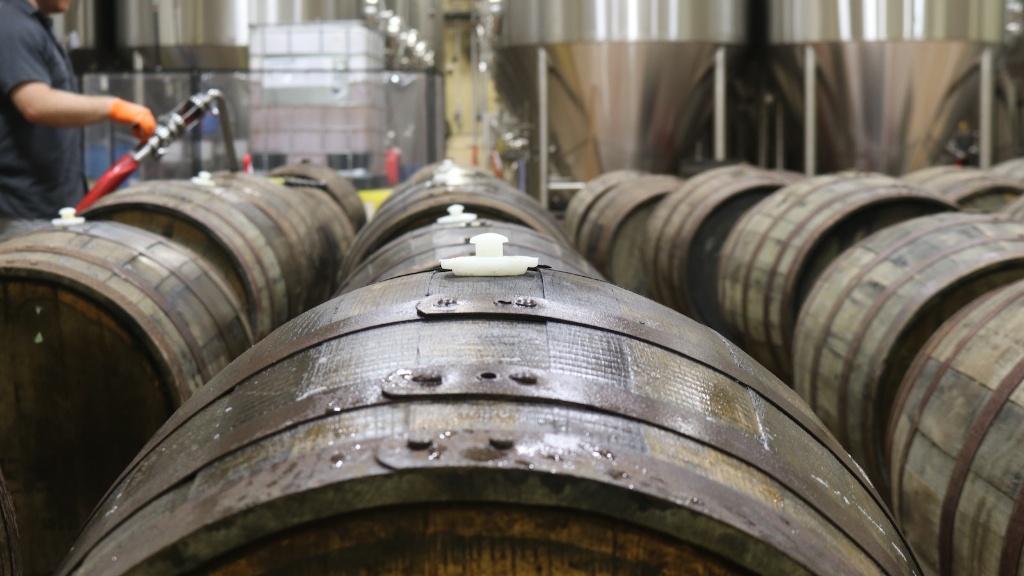Discovering The Peloponnese In Greece: A Guide
Discovering the Peloponnese in Greece: A Guide Greece is the land where gods and mortals once roamed, and this mythology-rich country continues to inspire and enthrall visitors like no other place on earth. The Peloponnese region,

Discovering the Peloponnese in Greece: A Guide
Greece is the land where gods and mortals once roamed, and this mythology-rich country continues to inspire and enthrall visitors like no other place on earth. The Peloponnese region, situated in the southern part of Greece, has played witness to some of the most fascinating events in Greek history, and boasts of spectacular landscapes and picturesque coastal towns. Here is a guide to discovering the Peloponnese, the less-known but equally captivating part of Greece.
The Peloponnese is a peninsula that extends from the Greek mainland and is joined by the Isthmus of Corinth. Home to ancient cities like Olympia, Sparta and Corinth, the Peloponnese is a treasure trove of mythological history. The birthplace of the Olympic Games, Olympia is home to the site of the ancient Olympic stadium, temples and other buildings. These structures stand as a testament to the Greeks’ deep-seated belief in creating and preserving physical and intellectual prowess through sporting events.
Outside the cities lie beautiful beaches, where visitors can enjoy a relaxed and tranquil atmosphere. The beaches of Voidokilia and Gialova rest on the Ionian Sea, offering a picturesque view of the sea and sandy dunes. The sea caves and small islands are also worth exploring. The bay of Navarino, located in the south-western part of the Peloponnese, is a popular spot for scuba diving, fishing, and other water sports. From the sublime scenery to the crystal-clear water, the Peloponnese is the perfect destination for a leisurely and scenic vacation.
For food lovers, the Peloponnese is a haven of authentic Greek flavors. Olive oil enthusiasts can visit the Kalamata region in the southern part of the peninsula, which is known for its superior-quality olives and oil made from its fruit. The cuisine of the Peloponnese is rich in seafood, fresh vegetables and herbs, with local dishes like pastitsio, moussaka and giouvetsi being must-try items. Local wine is also a highlight, with the Nemea region, situated inland, being the best-known wine-producing area of the Peloponnese.
Exploring the area by car is the best way to experience the Peloponnese. Car rental is highly recommended, and drivers must have an international driving permit to drive on Greek roads. For those looking for a more unconventional way to explore, hiking is an excellent option. The Lousios Gorge, located in the mountainous area in the northeastern part of the Peloponnese, is a stunning route for the more adventurous traveler. The hiking trail is a 7km, 5-hour walk through the natural landscape, passing by monasteries and ancient structures.
The Peloponnese is a traveler’s paradise steeped in culture, history and beauty. Beyond its world-famous ancient ruins, the peninsula is a place to connect with nature, relish in locally produced foods, and enjoy the company of the warm and hospitable locals. A trip to the Peloponnese should be on every traveler’s itinerary.
Exploring the Peninsula by Train
The Peloponnese is also accessible by train, making it an affordable option for travelers. The famous Diakopto-Pyrgos route is a 22km long train route that runs from the northwest coast across a bridge, along the gorge and to the mountain town of Kalavryta. This route is an engineering masterpiece with a series of tunnels and bridges that offer stunning views of the gorge and the bay of Corinth.
Historical Sites
The Peloponnese boasts of some of the most historic sites in Greece. During ancient times, the region was home to Sparta, which was one of the most powerful and feared civilizations in the ancient world. The ruins of Sparta are located near the present-day town of Sparta, and visitors can explore the remnants of ancient temples, stades, and other monuments.
The city of Mycenae, located in the northeastern part of the Peloponnese, was a thriving center of Mycenaean culture. The Mycenaean civilization dates back to the Bronze Age and is believed to have developed the first Greek script known as Linear B. Visitors to the city can explore the famous Lion Gate, the Tomb of Agamemnon, and the ruins of the palace of Mycenae.
Experience Traditional Greek Festivals
The Peloponnese is home to some of the most vibrant and traditional Greek festivals. The Carnival celebrations of Patras are among the oldest and most popular festivals of Greece. The festival includes parades, music, and dancing, and is celebrated seven weeks before the Eastern Orthodox Easter.
The city of Corinth celebrates its renowned sultana grape harvest festival in late August. Visitors can partake in the numerous revelries, including the famous grape-stomping ritual, traditional dancing, and music performances.
The Peloponnese, with its ancient history, breathtaking vistas, and authentic hospitality, is a part of Greece that should not be missed. Whether hiking up the Lousios Gorge, exploring the ruins of Sparta, or indulging in the delicious local cuisine, the region promises to provide visitors with an unforgettable experience that will last a lifetime.
Greece is the land where gods and mortals once roamed, and this mythology-rich country continues to inspire and enthrall visitors like no other place on earth. The Peloponnese region, situated in the southern part of Greece, has played witness to some of the most fascinating events in Greek history, and boasts of spectacular landscapes and picturesque coastal towns. Here is a guide to discovering the Peloponnese, the less-known but equally captivating part of Greece.
The Peloponnese is a peninsula that extends from the Greek mainland and is joined by the Isthmus of Corinth. Home to ancient cities like Olympia, Sparta and Corinth, the Peloponnese is a treasure trove of mythological history. The birthplace of the Olympic Games, Olympia is home to the site of the ancient Olympic stadium, temples and other buildings. These structures stand as a testament to the Greeks’ deep-seated belief in creating and preserving physical and intellectual prowess through sporting events.
Outside the cities lie beautiful beaches, where visitors can enjoy a relaxed and tranquil atmosphere. The beaches of Voidokilia and Gialova rest on the Ionian Sea, offering a picturesque view of the sea and sandy dunes. The sea caves and small islands are also worth exploring. The bay of Navarino, located in the south-western part of the Peloponnese, is a popular spot for scuba diving, fishing, and other water sports. From the sublime scenery to the crystal-clear water, the Peloponnese is the perfect destination for a leisurely and scenic vacation.
For food lovers, the Peloponnese is a haven of authentic Greek flavors. Olive oil enthusiasts can visit the Kalamata region in the southern part of the peninsula, which is known for its superior-quality olives and oil made from its fruit. The cuisine of the Peloponnese is rich in seafood, fresh vegetables and herbs, with local dishes like pastitsio, moussaka and giouvetsi being must-try items. Local wine is also a highlight, with the Nemea region, situated inland, being the best-known wine-producing area of the Peloponnese.
Exploring the area by car is the best way to experience the Peloponnese. Car rental is highly recommended, and drivers must have an international driving permit to drive on Greek roads. For those looking for a more unconventional way to explore, hiking is an excellent option. The Lousios Gorge, located in the mountainous area in the northeastern part of the Peloponnese, is a stunning route for the more adventurous traveler. The hiking trail is a 7km, 5-hour walk through the natural landscape, passing by monasteries and ancient structures.
The Peloponnese is a traveler’s paradise steeped in culture, history and beauty. Beyond its world-famous ancient ruins, the peninsula is a place to connect with nature, relish in locally produced foods, and enjoy the company of the warm and hospitable locals. A trip to the Peloponnese should be on every traveler’s itinerary.
Exploring the Peninsula by Train
The Peloponnese is also accessible by train, making it an affordable option for travelers. The famous Diakopto-Pyrgos route is a 22km long train route that runs from the northwest coast across a bridge, along the gorge and to the mountain town of Kalavryta. This route is an engineering masterpiece with a series of tunnels and bridges that offer stunning views of the gorge and the bay of Corinth.
Historical Sites
The Peloponnese boasts of some of the most historic sites in Greece. During ancient times, the region was home to Sparta, which was one of the most powerful and feared civilizations in the ancient world. The ruins of Sparta are located near the present-day town of Sparta, and visitors can explore the remnants of ancient temples, stades, and other monuments.
The city of Mycenae, located in the northeastern part of the Peloponnese, was a thriving center of Mycenaean culture. The Mycenaean civilization dates back to the Bronze Age and is believed to have developed the first Greek script known as Linear B. Visitors to the city can explore the famous Lion Gate, the Tomb of Agamemnon, and the ruins of the palace of Mycenae.
Experience Traditional Greek Festivals
The Peloponnese is home to some of the most vibrant and traditional Greek festivals. The Carnival celebrations of Patras are among the oldest and most popular festivals of Greece. The festival includes parades, music, and dancing, and is celebrated seven weeks before the Eastern Orthodox Easter.
The city of Corinth celebrates its renowned sultana grape harvest festival in late August. Visitors can partake in the numerous revelries, including the famous grape-stomping ritual, traditional dancing, and music performances.
The Peloponnese, with its ancient history, breathtaking vistas, and authentic hospitality, is a part of Greece that should not be missed. Whether hiking up the Lousios Gorge, exploring the ruins of Sparta, or indulging in the delicious local cuisine, the region promises to provide visitors with an unforgettable experience that will last a lifetime.

